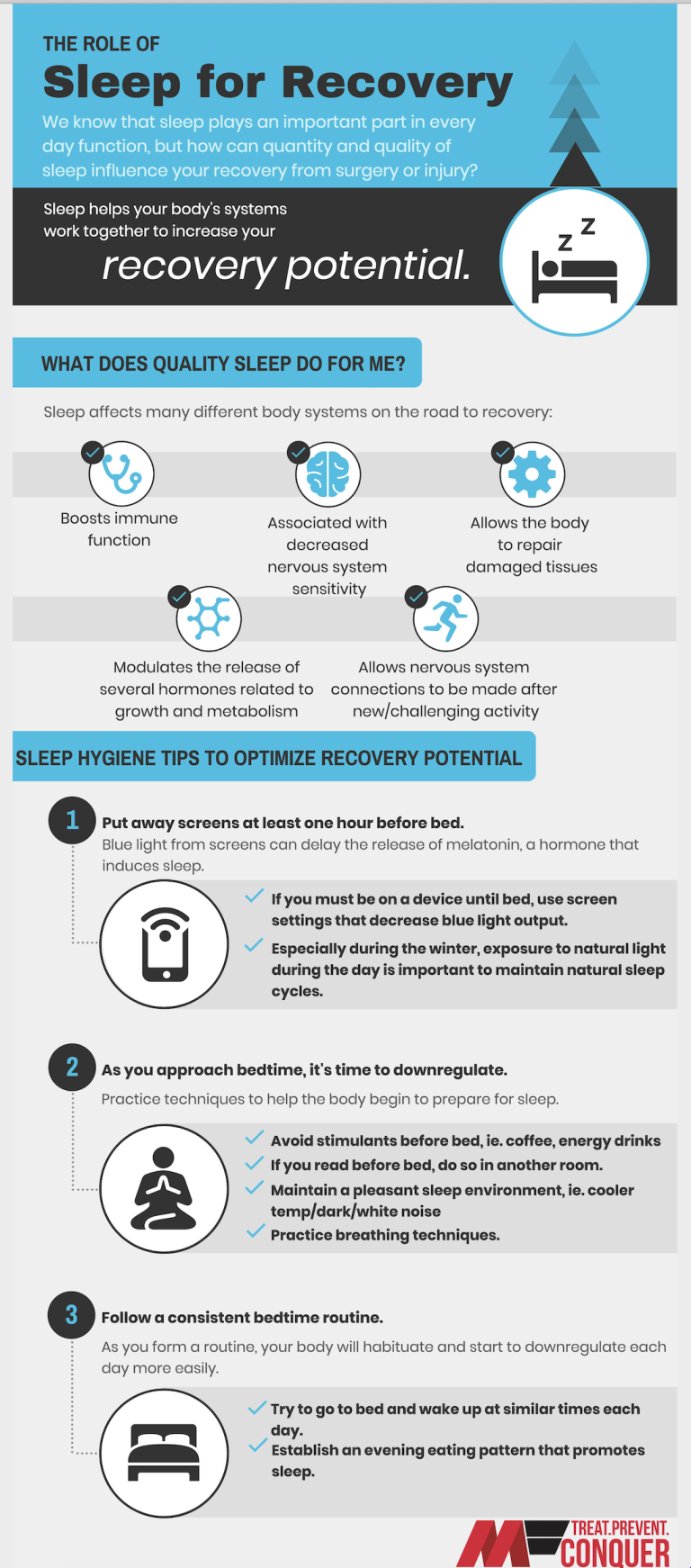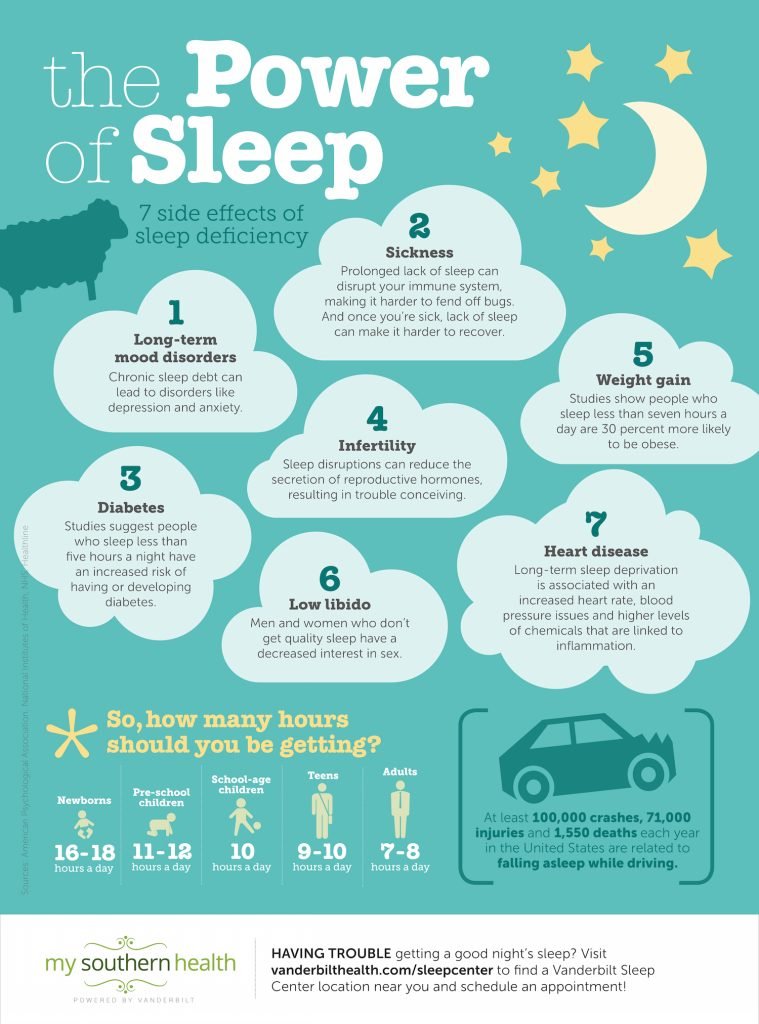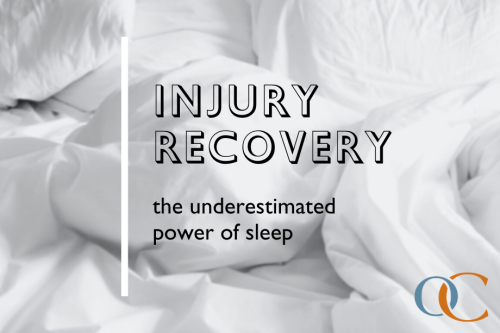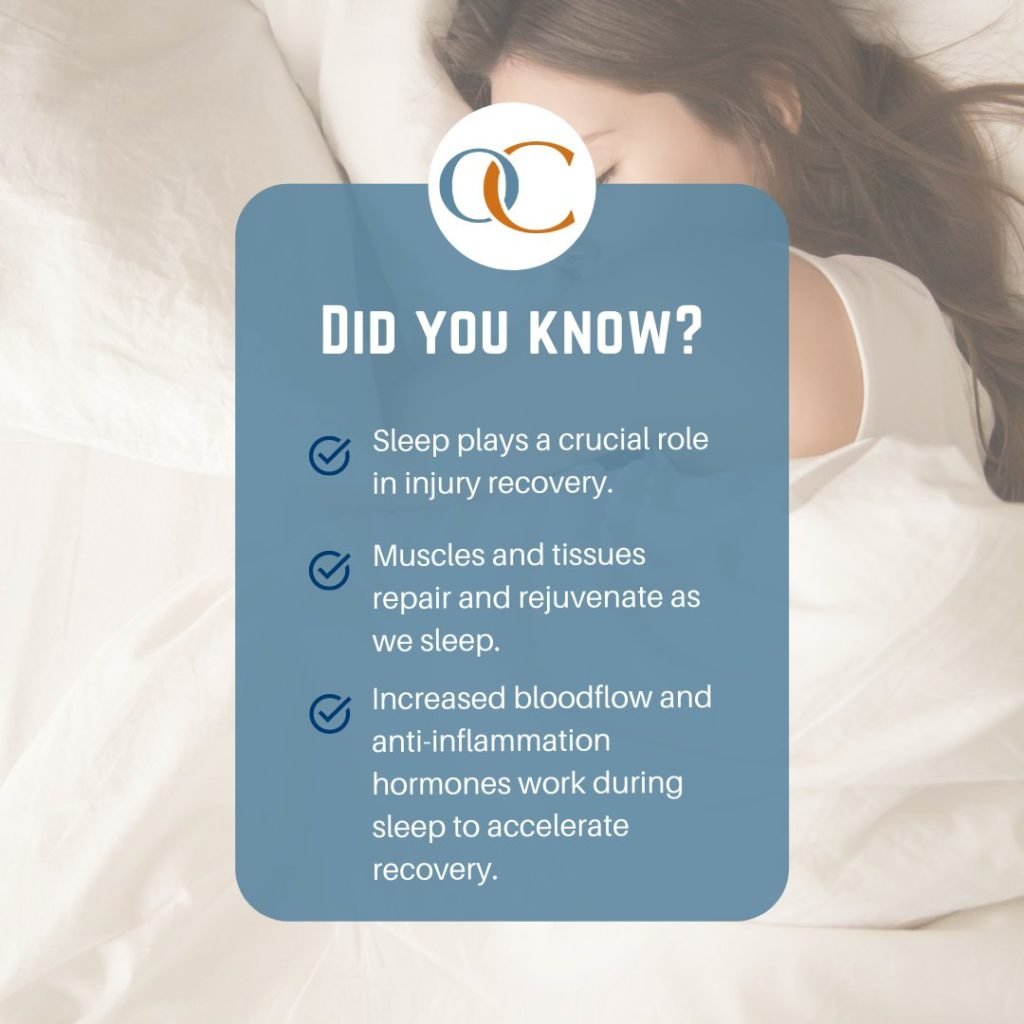
You know that feeling when you wake up after a good night’s sleep, refreshed and ready to tackle the day ahead? Well, it turns out that getting enough sleep is not just about feeling rested – it plays a crucial role in our body’s recovery process. Whether you’re an athlete looking to enhance your performance or simply trying to maintain a healthy lifestyle, understanding the importance of sleep for recovery is key. In this article, we’ll explore how sleep impacts our body’s ability to heal and regenerate, and why getting quality shut-eye should be a top priority.
The Importance of Sleep for Recovery
When it comes to recovery, one often overlooked but vital aspect is sleep. The quality and duration of your sleep can significantly impact your body’s ability to heal and recover from physical and mental exertion. In this article, we will explore the various ways in which sleep plays a crucial role in the recovery process, from physical restoration to cognitive function and emotional well-being. So, let’s dive in and discover why sleep is an essential component of recovery.
Sleep Quality and Duration
Effect of Sleep Quality on Recovery
Quality sleep is not just about the number of hours you spend in bed; it’s also about the depth and effectiveness of your sleep. During the different stages of sleep, your body undergoes important processes that contribute to recovery. For instance, slow-wave sleep, also known as deep sleep, is when your body repairs damaged tissues, replenishes energy reserves, and boosts the immune system. On the other hand, rapid eye movement (REM) sleep is vital for cognitive restoration, memory consolidation, and emotional well-being. Therefore, ensuring high-quality sleep is key to optimizing your recovery process.
Recommended Duration of Sleep for Recovery
While everyone’s sleep needs may vary, research suggests that most adults require between 7-9 hours of sleep per night to achieve optimal recovery. However, it’s important to recognize that individual variations exist, and factors such as age, activity level, and overall health can influence sleep requirements. It’s essential to prioritize sleep and find the duration that works best for your body in order to maximize your recovery potential.

This image is property of mobilityfit.com.
Physical Recovery
Tissue Repair and Regeneration
During sleep, your body engages in a process called tissue repair and regeneration. This process involves the repair of damaged tissues and the growth of new cells. Sleep allows your body to allocate resources to heal injuries, reduce inflammation, and reduce swelling. Without sufficient sleep, your body’s ability to repair and regenerate tissues is compromised, leading to delayed recovery and increased vulnerability to further damage.
Restoration of Energy Reserves
Physical activity and exercise deplete your body’s energy reserves. Sleep acts as a replenishment mechanism, allowing your body to restore its energy stores. During sleep, your body ramps up the production of adenosine triphosphate (ATP), the primary energy currency of cells. This recharging of energy reserves helps you wake up feeling refreshed and energized, ready to take on the challenges of the day and aid in your recovery process.
Reduction of Inflammation and Swelling
Inflammation and swelling are common responses to physical stress and injury. While acute inflammation is a normal part of the healing process, chronic inflammation can hinder recovery and lead to long-term health issues. Sleep plays a vital role in the reduction of inflammation and swelling by modulating the production of inflammatory cytokines. By promoting a balanced immune response, adequate sleep helps facilitate a faster and healthier recovery.
Muscle Repair and Growth
Role of Sleep in Muscle Repair
When you engage in strenuous physical activities, such as strength training or endurance exercises, microscopic tears occur in your muscle fibers. These tears need to be repaired for muscle growth and increased strength. During sleep, your body releases growth hormone, which stimulates muscle repair and synthesis. Additionally, sleep enhances protein synthesis, the process by which your body builds new proteins for muscle growth. By allowing sufficient time for these processes to occur, sleep becomes a critical factor in muscle repair and growth.
Stimulation of Growth Hormone Production
Growth hormone plays a vital role in the recovery and growth of muscles, bones, and tissues. Sleep is a major mediator of growth hormone production, with the majority of secretion occurring during deep sleep. Growth hormone promotes protein synthesis, helps rebuild tissues, and aids in the recovery of damaged muscles. By prioritizing sleep, you pave the way for optimal growth hormone release, facilitating faster and more efficient muscle repair and growth.

This image is property of images02.military.com.
Hormone Regulation
Impact of Sleep on Hormone Levels
Sleep is closely tied to hormonal regulation, as various hormones play a crucial role in the recovery process. A lack of sleep can lead to imbalances in hormones such as cortisol, which is often referred to as the stress hormone. Elevated cortisol levels can impair the body’s ability to recover, as it interferes with tissue repair, muscle growth, and immune function. By prioritizing sleep, you can help maintain a balanced hormone profile, ensuring optimal conditions for recovery.
Regulation of Stress Hormones
Sleep acts as a natural stress-reducer, helping to regulate stress hormones such as cortisol and adrenaline. Chronic stress can hinder recovery by contributing to inflammation, impairing the immune system, and inhibiting muscle repair. By ensuring adequate sleep, you provide your body with the opportunity to lower stress hormone levels, promoting a more efficient recovery process while reducing the risk of chronic stress-related health issues.
Cognitive Restoration
Memory Consolidation
Sleep plays a crucial role in memory consolidation, the process by which your brain solidifies and stabilizes newly acquired information. During sleep, your brain strengthens connections between neurons, integrating new knowledge and experiences into long-term memory storage. Adequate sleep is therefore essential for retaining what you’ve learned during the day and optimizing your cognitive function.
Enhanced Learning and Problem-solving Abilities
In addition to memory consolidation, sleep also enhances learning and problem-solving abilities. Research has shown that after a good night’s sleep, individuals perform better on tasks that require attention, decision-making, and complex problem-solving. By allowing your brain valuable time to rest and recharge during sleep, you are setting yourself up for improved cognitive performance and better recovery in all areas of life.

This image is property of www.mysouthernhealth.com.
Emotional Well-being
Mood Regulation
Sleep and emotional well-being are closely intertwined. Lack of sleep can lead to mood disturbances, such as irritability, mood swings, and even symptoms of depression. On the other hand, adequate sleep is essential for maintaining emotional balance and promoting a positive mood. During sleep, your brain processes emotions and regulates neurotransmitters that influence mood. By prioritizing good sleep habits, you can enjoy improved emotional well-being and a better overall recovery experience.
Reduced Risk of Mental Health Disorders
Research has demonstrated a clear link between sleep disturbances and an increased risk of mental health disorders. Lack of sleep has been associated with conditions such as anxiety disorders, depression, and bipolar disorder. Conversely, sufficient sleep can act as a protective factor, reducing the risk of developing these mental health conditions. By recognizing the importance of sleep for emotional well-being, you can prioritize sleep as a key component in your recovery journey.
Immune System Function
Effect of Sleep on Immune System
Sleep and immune system function are intimately connected. The immune system relies on sleep to maintain its defenses and effectively respond to pathogens and other foreign invaders. During sleep, your body produces and releases cytokines, a type of protein that regulates immune responses. These cytokines help promote tissue repair, protect against infections, and enhance the immune system’s ability to fight off illnesses. By ensuring sufficient sleep, you support your immune system’s efforts and bolster your overall recovery process.
Enhanced Immune Response
Quality sleep is crucial for fostering a robust immune response. Research has consistently shown that individuals who consistently get inadequate sleep are more prone to infections and have slower recovery times. This is due to the negative impact of sleep deprivation on immune cell function and inflammatory responses. By prioritizing sleep, you can arm your immune system with the necessary tools to respond effectively to challenges, promoting faster recovery and reducing the risk of illness.

This image is property of www.orthocarolina.com.
Injury Prevention
Promotion of Healing
Sleep plays an essential role in healing and recovery from injuries. Whether you’re recovering from a sprained ankle or surgery, ample sleep supports the body’s natural healing process. During sleep, your body releases growth factors, such as insulin-like growth factor-1 (IGF-1), which aids in tissue repair and the formation of new blood vessels. Adequate sleep also helps reduce inflammation, minimizing further damage and promoting faster recovery. By prioritizing sleep, you provide your body an optimal environment for healing, reducing the risk of complications and promoting a smooth recovery process.
Reduced Risk of Accidents and Injuries
Sleep deprivation can impair various cognitive functions, including attention, reaction time, and decision-making abilities. These deficits increase the risk of accidents and injuries during daily activities, exercise, or sports. By getting enough sleep, you enhance your cognitive performance, allowing you to stay alert, make better judgments, and react quickly to potential hazards. Prioritizing sleep not only aids in the recovery of existing injuries but also reduces the risk of additional accidents and injuries.
Performance Enhancement
Improvement in Physical Performance
Whether you’re an athlete or simply engaging in regular exercise, sleep plays a vital role in enhancing your physical performance. Sleep deprivation can lead to decreased muscular strength, lower endurance levels, and impaired coordination. On the other hand, sufficient sleep has been shown to improve athletic performance, increase reaction time, and boost overall physical fitness. By prioritizing sleep, you’re investing in your body’s ability to recover and perform at its best, helping you reach your peak potential.
Enhanced Cognitive Performance
Sleep is not only crucial for physical performance but also for cognitive performance. Whether you’re an academic, a professional, or a student, sleep is vital for optimal cognitive function. Research has consistently shown that sleep deprivation negatively impacts attention, memory, decision-making, and creative thinking. Conversely, adequate sleep enhances focus, mental clarity, and problem-solving abilities. By ensuring you get enough sleep, you equip yourself with a sharper mind, supporting your recovery and boosting your overall performance in various aspects of life.

This image is property of pbs.twimg.com.
Sleep as an Essential Component of Recovery
While nutrition, exercise, and other recovery modalities are essential, sleep must be regarded as an equally important pillar of the recovery process. Without adequate sleep, your body is unable to fully repair, restore, and recharge. To optimize your recovery potential, it’s crucial to consider additional factors that can impact your sleep, such as sleep hygiene, creating a sleep-friendly environment, and managing stress levels. By adopting strategies to optimize your sleep, you actively contribute to a comprehensive recovery plan that addresses the physical, mental, and emotional aspects of healing.
In conclusion, sleep is not merely a luxury but a necessity for recovery. It impacts physical repair, muscle growth, hormone regulation, cognitive restoration, emotional well-being, immune system function, injury prevention, and performance enhancement. By prioritizing sleep and recognizing its importance, you can maximize your body’s ability to recover, ensuring a faster, more efficient, and well-rounded path to overall wellness. So, make sleep a priority, and let your body heal, recover, and thrive.